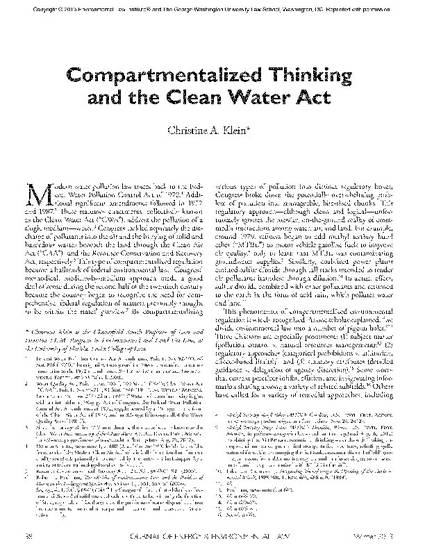
Modern water pollution control traces back to the Federal Water Pollution Control Act of 1972 (Clean Water Act or CWA). Like other statutes of its period, the CWA addresses pollution of a single medium, water. Despite its goal of achieving aquatic integrity, the CWA succumbs to what this article refers to as “compartmentalized thinking.” That is, in drafting the CWA, Congress created a series of regulatory boxes that separate water into constituent parts recognized by law, but not by nature. Undertaking a deeper examination of the fragmentation instinct, this article turns to political theory and cognitive psychology for explanations. In particular, the discussion considers four aspects of political theory (legal baggage from the New Deal, pragmatism, incrementalism, and political competition) and two tools recognized by cognitive psychology (schema and heuristics). The article’s final part illustrates specific Clean Water Act disputes in which fragmented thinking may have produced cognitive illusions that run counter to the purposes of the statute.
